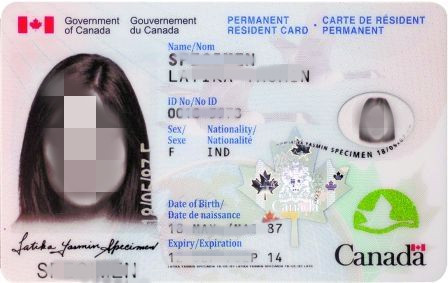A Full Analysis Of The Canadian Study Abroad Visa Application Time, Helping You Make Full Preparations
A Full Analysis Of The Canadian Study Abroad Visa Application Time, Helping You Make Full Preparations
Canada has attracted a large number of international students to study abroad with its high-quality education system, diverse cultures and a safe social environment. For students planning to study in Canada, applying for a study abroad visa is an important and essential step. Many students and...

With its outstanding educational resources, rich cultural diversity and stable social security, Canada has attracted many international students to further their studies. Applying for a study abroad visa is a critical and indispensable process for students who are interested in continuing their studies in Canada. Many students and their parents are particularly concerned about the application cycle for Canadian study visas, as it directly affects their itinerary planning and admission preparation. This article will conduct in-depth analysis of the time required for applying for a Canadian study abroad visa, covering various factors that affect the application time limit, the difference in time between different application channels, strategies to improve application efficiency, and answers to common questions, aiming to assist applicants in making comprehensive preparations and ensure the smooth progress of the visa application process.

The application cycle for a Canadian study abroad visa is affected by a variety of factors, including the following key points:
The applicant's nationality or residence vary, and the approval speed of the Canadian Visa Application Center also varies. Generally speaking, factors such as the work efficiency of the visa center where the applicant is located, the number of applicants, and seasonal changes will have a certain impact on the time of visa processing.
The completeness and accuracy of application materials are crucial, and it is directly related to the time limit for visa processing. If the submitted information is incomplete or incorrect, the visa approval cycle may be lengthened, and sometimes relevant materials may even be added.
The peak season for visa application often occurs from July to September each year, which is on the eve of school opening, and the number of applicants has increased significantly, which may lead to an extension of visa processing time. In view of this, applicants are advised to try to avoid this peak period and start preparing and submitting visa applications in advance.
During the visa application process, applicants may need to undergo personal background checks and physical examinations. These steps will also have a certain impact on the duration of visa application. Background checks usually cover verification of criminal records, confirmation of educational experience, etc.; while physical examinations require applicants to go to designated medical institutions, and the results of physical examinations also require some time to wait.
After mastering the many factors that affect the speed of visa processing, we will discuss the difference in time-consuming application methods. As for Canadian study abroad visas, the application channels are mainly divided into two categories: online submission and paper submission.
Online application is the most common and highly respected application path at present. Applicants can log in to the official website of the Canadian Department of Immigration, Refugees and Citizenship Affairs (IRCC), register an account, then fill out the application form and attach relevant documents. This application method has the characteristics of convenient operation, rapid processing, and open and transparent review process. Typically, the visa processing period for online applications is 4 to 8 weeks, however, the actual time required varies depending on the country or region where the applicant is located.
Paper application involves the applicant sending the completed application form and required documents to the Canadian Visa Application Center by mail. The processing of such applications is relatively slow, mainly due to the additional mailing steps and manual operation time involved. Normally, the visa processing period for paper applications is between 8 and 12 weeks, however, this time will vary depending on the country or region where the applicant lives.
In order to improve the efficiency of Canadian study abroad visa processing, applicants can try the following ways:
Prepare the required documents in advance: Be sure to prepare all required documents in advance to ensure their completeness, accuracy and meet relevant regulations. This move will also help to reserve sufficient time to complete necessary procedures such as translation, notarization and certification.
Try to choose non-peak hours of application for visa application and submit relevant materials as soon as possible. Generally speaking, it is recommended to complete the visa application procedures within the first 3 to 6 months of the estimated enrollment time.
The online application method is adopted to select the online application model. The application process is faster and the review process is clearer and clearer. At the same time, the application progress can be grasped in real time.
When filling out the application form and submitting relevant materials, be sure to ensure that the information is detailed and clear, so as to prevent the extension of the audit cycle due to missing information or errors.
If the visa officer proposes a request for additional information, the applicant must submit the corresponding documents quickly to ensure that the progress of visa processing is not delayed.
In the process of applying for a Canadian study visa, applicants may encounter several common problems. The following lists some typical questions and their corresponding answers:
When a visa application is rejected, the applicant may optimize the application content and supplement relevant materials based on the reasons given by the Immigration, Refugees and Citizenship (IRCC) of Canada, and then submit the application again. At the same time, the applicant has the right to appeal to the Immigration and Refugee Council of Canada (IRB).
How to understand the progress of visa application? Applicants can visit the official website of the Immigration, Refugees and Citizenship Canada (IRCC) or go to the visa application center for inquiries. For applicants who submit applications online, log in to the IRCC account to view the application dynamics, while applicants who submit paper applications must use their application number to check the status on the official website of the visa application center.
If the visa application period exceeds the expected period, applicants can visit the official website of the Canadian Ministry of Immigration, Refugees and Citizenship (IRCC) to submit inquiries to obtain the latest information on visa processing. In addition, applicants can also contact the Canadian visa application center in their country or region for further assistance.
Overall, the application period for Canadian study visas is affected by many aspects, generally ranging from 4 to 12 weeks. If the applicant prepares complete materials in advance, avoids peak application periods, adopts online application methods, provides detailed information, and responds to the request for supplementary information quickly, it is expected to speed up the visa approval process and successfully complete the visa application. The detailed explanation of this article is expected to provide valuable reference for students who have the desire to study in Canada, helping them successfully obtain visas and embark on the journey to realize their dream of studying abroad.
We are interested in applying for studying abroad, or are interested in going overseas for further studies, we warmly invite you to consult this site for relevant information.
Get the Global Study Abroad White Paper for free, and you can have a comprehensive understanding of the application requirements, tuition standards, admission time and the value of your degree.





